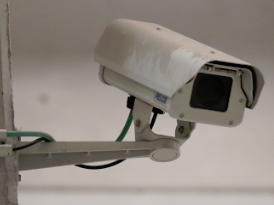
The Chartered Institute of Journalists has called for more details about the use of the so-called Snoopers’ Charter to be published.
The Institute called on the Investigatory Powers Commissioner’s Office to provide more detailed information about warrants seeking journalists’ digital data and information that could identify their sources.
Professor Tim Crook has asked for more detail about when state investigation bodies have applied to judicial commissioners for access to journalistic data that could be confidential information, or breach the protection of journalists’ sources.
The IPCO was set up to provide oversight of the use of Investigatory Powers Act 2016, which is also known as the Snoopers’ Charter.
To date the institute has only reported that there were 755 applications made to acquire data by public bodies in 2017 relating to individuals who held sensitive professions and these could have related to ‘lawyers, journalists, members of parliament, ministers of religion or doctors.’
Professor Crook has complained to the IPCO arguing that given the importance of Article Ten freedom of expression rights to protect journalists’ confidential information and sources, this level of reporting was inadequate.
He said: “The 2017 report only stated that IPCO inspectors found no instances of the legislation being used ‘improperly to identify journalistic sources’. We need to know about those ‘proper’ instances when it has actually been used to reveal sources.”
He has asked for the exact number of the times interception and use of journalistic data has been approved by the judicial commissioners who evaluate the applications in secret.
The Institute believes the IPA 2016 legislation is a very poor substitute for the scrutiny of the courts under the Police and Criminal Evidence Act of 1984, when production orders against journalists have to be decided by judges with the parties represented by counsel.
Professor Crook said he received a statement from the IPCO’s legal and policy team which said: “We will consider whether to include the information you have requested in the IPCO’s next annual report.”
The IPCO have defended their decision not to release any interim figures and information on the basis that they are “required to ensure that we do not cause national security or law enforcement concerns through the information we publish”.
Picture: Albert Gea/Reuters
Email pged@pressgazette.co.uk to point out mistakes, provide story tips or send in a letter for publication on our "Letters Page" blog






